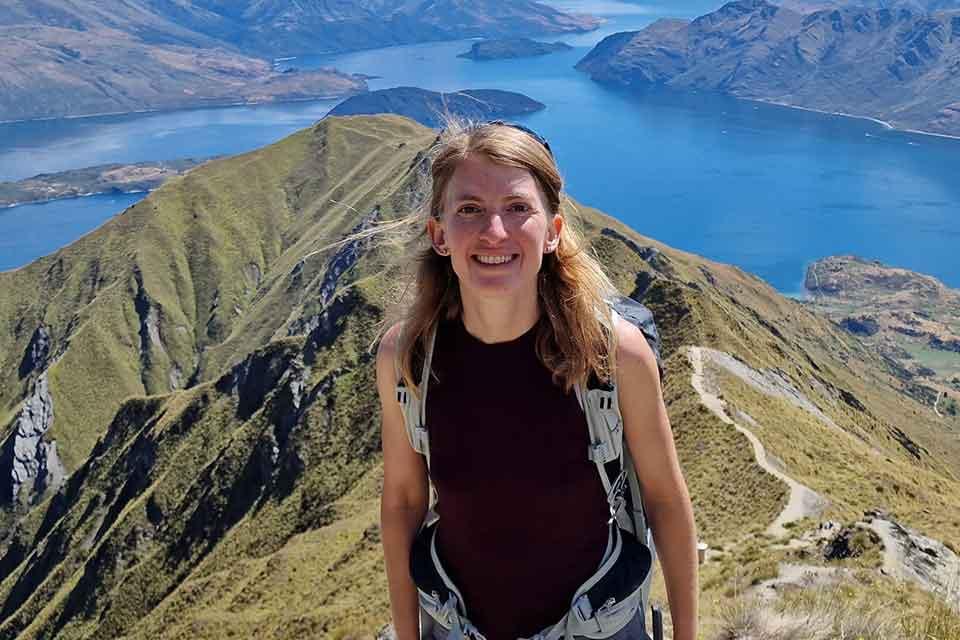We work among extraordinary people doing extraordinary things; get to know some of them by reading these quick-fire interviews.
Name: Jasmine Brewer
Job title: Leverhulme-Peierls fellow
What are you currently working on?
I am a theoretical physicist, aiming to understand what happens when heavy nuclei like lead or gold collide with each other at very high energies. Unlike in collisions of protons, collisions of heavy nuclei have such high energy density that they produce an exotic state of matter – called the quark-gluon plasma – where quarks and gluons are no longer confined inside of protons and neutrons and instead form a fluid. Collisions of heavy nuclei are our only opportunity to study this fluid, which was the state of all matter in the universe immediately after the Big Bang. However, the entire collision happens extremely fast (in about 10-21 seconds!) so to learn about the properties of this fluid we have to infer what happened in the collision from what we can measure much later – a bunch of particles that end up in the detector. A lot of what I work on is how to do theory-informed data analysis; for example, I try to identify types of events where we have as much information as possible to reconstruct what was going on inside the collision. On the more theoretical side, I also work on understanding how the fluid itself forms, which touches on equilibration and the regime of applicability of hydrodynamics.
Describe a typical day
One of the things I enjoy about my work is that my research area is open-ended, and problems can be tackled in many different ways, so I have a fair amount of diversity in what I work on day-to-day. I spend a lot of my day coding. Often I am writing analysis routines and running Monte Carlo simulations of high-energy physics processes, aiming to study and visualise the output of those simulations in various ways to better understand how the underlying principles play out in more realistic simulations. Other days I am working on understanding fluid dynamics, especially how the interactions between individual particles leads to equilibration and fluid behavior, by writing and interpreting simulations of particle dynamics. For lunch I usually go to my college, St. Hilda’s, and either have lunch with colleagues in college, or take my lunch away to eat with colleagues in the physics department. I have a lot of collaborators outside of the UK and even outside of Europe, so in the afternoon I often have a few research meetings. In the evening I often stop by college for dinner and then either go bouldering or to the gym with friends. In the evenings, I enjoy doing side-projects in machine learning, and I am learning French.
If you had an entire day at your disposal (not at work/studying), what would be your ideal way to spend it?
I love being outdoors. I grew up in the Rocky Mountains in the US, and spent the last three years in Geneva, before I moved to Oxford last fall. My favorite way to spend a day off work is hiking in the mountains with friends, cycling, running, or skiing. I also love travelling to new places.
What is your favourite place in Oxford?
I love running along the canal paths on a sunny day.
Plan B: what would you be if you weren’t doing the job you are currently doing?
I have always been fascinated by biology, especially structural biology like how proteins fold and how their physical structure impacts their function. It appeals to me because it is geometric with relatively simple underlying rules, but the emergent features and dynamics are highly complex. In another job I would love to work in statistical inference and simulations for computational biology.

